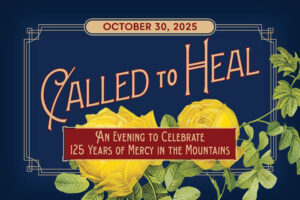Mer cy Urgent Care, a not-for-profit health care organization headquartered in Asheville, is offering free flu shots on Monday, Jan. 13, outside of its new, soon-to-open facility in Waynesville.
cy Urgent Care, a not-for-profit health care organization headquartered in Asheville, is offering free flu shots on Monday, Jan. 13, outside of its new, soon-to-open facility in Waynesville.
Dedicated to providing compassionate, affordable care to all in Western North Carolina, Mercy will administer up to 150 free vaccines from 3-6 p.m. in front of the new location, at 124 Frazier St., Suite 6. A tent will be set up for the event in the parking lot of the brand-new urgent care center, located in the Publix Plaza just off the Great Smoky Mountains Expressway Exit 102.
This promotion follows recent, tragic news of two flu-related deaths in Haywood County, an area hit especially hard by this season’s wave of influenza. Mercy Urgent Care hopes that this donation of 150 vaccines helps to increase access to the flu shot and decrease the flu’s spread in local patients.
Flu shots, which regularly cost $34.99 before insurance, are available for ages 8 and up at all seven (soon to be eight) Mercy Urgent Care locations across Western North Carolina. Covered by many health care plans, the flu vaccine reduces a person’s risk of developing a flu-related illness by an average of 61 percent.
Each season, between 5 and 20 percent of the U.S. population comes down with the virus — and the 2019/2020 season in particular has proven itself particularly severe early on, according to data from the Centers for Disease Control and Prevention.
Mercy Urgent Care Waynesville is slated to open on Tuesday, Feb. 4, and will be open seven days per week, Monday through Friday from 8 a.m. to 5:30 p.m. and on Saturdays and Sundays from 10 a.m. to 4 p.m. This new location will bring high-quality, affordable and convenient medical care for non-life-threatening illnesses and injuries to Haywood County, giving patients in the Waynesville area access to walk-in care at a fraction of the cost of an ER visit.






